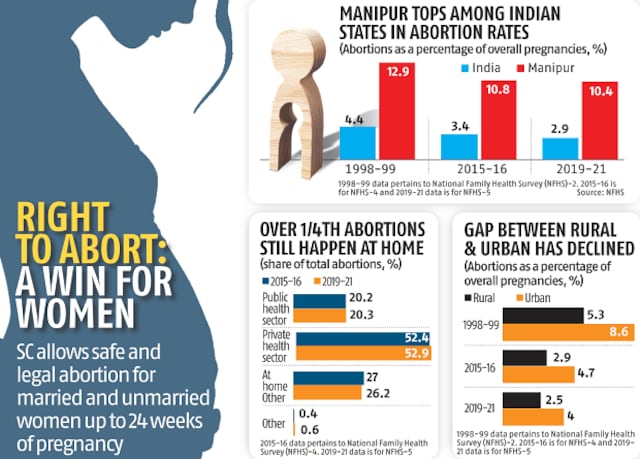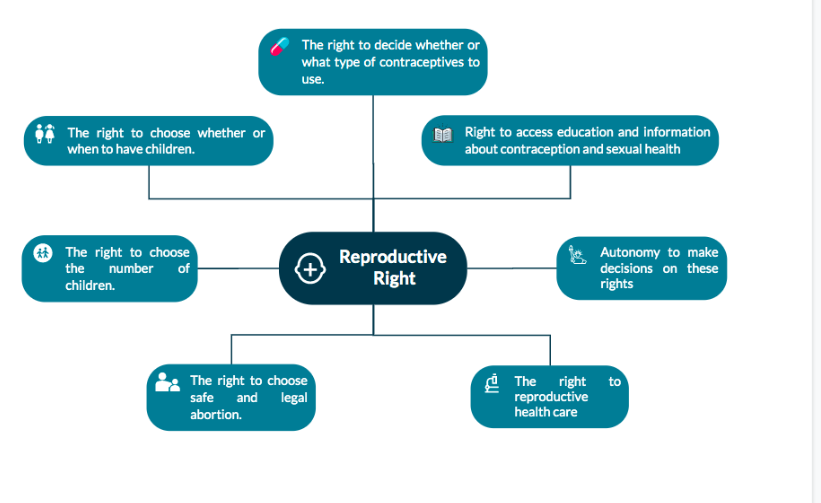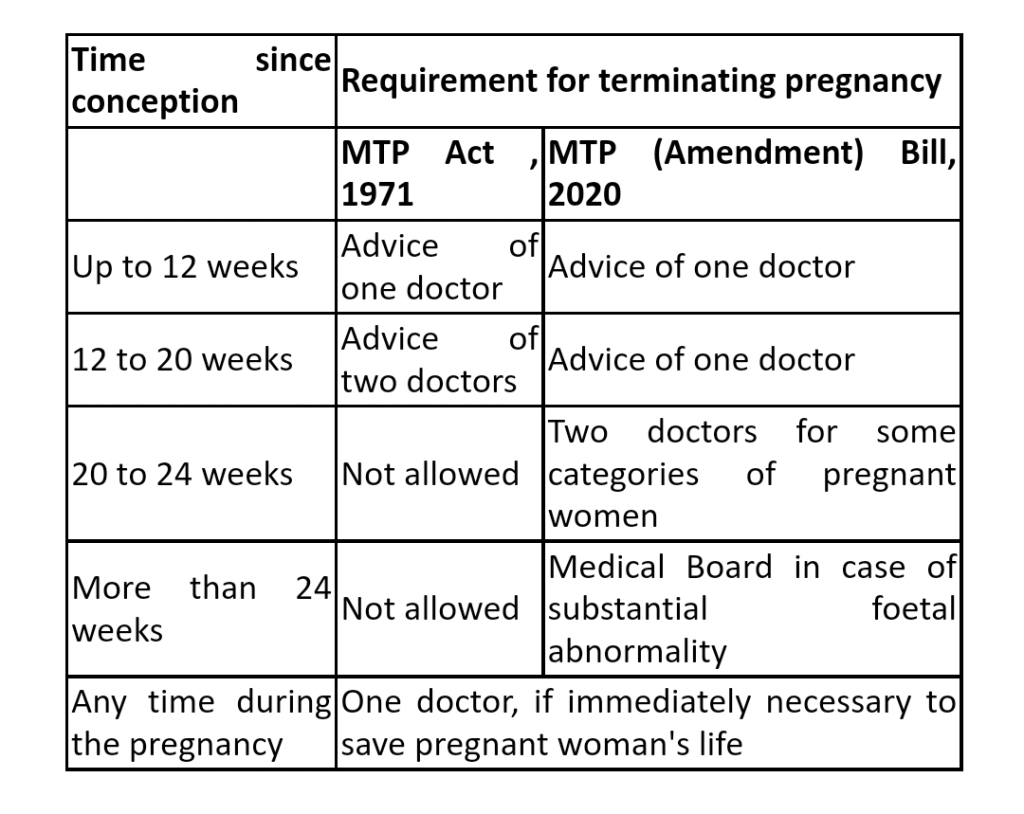The court ruled that it was a violation of the right to equality before the law and equal protection to deny abortion services to unmarried women who are between 20 and 24 weeks pregnant while providing them to married women who are at the same stage of pregnancy (Article 14).

Ruling of Supreme Court
The court ruled that preventing single or unmarried women with 20- to 24-week pregnancies from obtaining abortion but allowing married women to do so violated equality before the law and equal protection (Article 14).
A single or unmarried woman might have the same “material change” or mental health harm as a married pregnant woman. During her pregnancy, she may be abandoned, fired, or abused. Her ex-partner may not desire a kid. Folate anomalies may endanger her life. A single woman’s pregnancy may be owing to exploitation or contraception failure, causing her emotional pain.
Her pregnancy may be the same as other women’s.
The law shouldn’t decide statutory beneficiaries based on patriarchal ideas of lawful sex. This creates unfair categories.
The court noted the Medical Termination of Pregnancy (Amendment) Act of 2021 addressed unsafe abortions. Eight Indian women die daily from unsafe abortions. 67% of abortions in the nation from 2007-2011 were unsafe, according to research. The Parliament knew that women without marriages and in impoverished households were forced to choose dangerous or illegal abortion methods. The 2021 changes incorporated the word ‘partner‘ to demonstrate that the legislation was concerned about women who become pregnant within and outside of marriage. Married and unmarried women face the same health risks.
The court noted the Medical Termination of Pregnancy (Amendment) Act of 2021 addressed unsafe abortions. Eight Indian women die daily from unsafe abortions. 67% of abortions in the nation from 2007-2011 were unsafe, according to research. The Parliament knew that women without marriages and in impoverished households were forced to choose dangerous or illegal abortion methods. The 2021 changes incorporated the word ‘partner’ to demonstrate that the legislation was concerned about women who become pregnant within and outside of marriage. Married and unmarried women face the same health risks.
The Court made the connection between reproductive rights of women and their right to bodily autonomy, noting that “the option to carry a pregnancy to term or terminate it is firmly based in the right to bodily autonomy.”
The ruling widened the scope of the concept of “reproductive rights.” Whether or if you wanted kids was never an issue. A whole “constellation of rights, privileges, and freedoms for women” was incorporated in the concept of “reproductive rights” for women.
 Rights as per Article 21
Rights as per Article 21
Legalization of abortion in India: a quick overview
- Abortion was illegal in India before 1971, when the law was amended to remove the phrase “causing miscarriage” from the definition of Section 312 of the Indian Penal Code, 1860.
- Abortion was illegal unless it was necessary to preserve the life of the woman.
- The Ministry of Health and Family Welfare (MoHFW) is on high alert due to the shocking rise in the number of abortions.
- In 1964, the government of India appointed a committee headed by Shantilal Shah to propose solutions on how to design India’s abortion law. The Medical Termination of Pregnancy Act of 1971 reflected the recommendations of this group.
- Legal Revisions to the MTP, 2021.
Key aspects of the changes:
In the past, only a married woman may terminate a pregnancy if a contraceptive failed. Unmarried women can now obtain abortion services for contraceptive failure until 20 weeks
Increasing the upper gestational limit from 20 to 24 weeks for survivors of rape, victims of incest, and other vulnerable women (such differently-abled women, juveniles, etc.)
One doctor’s opinion is necessary for up to 20 weeks of pregnancy and two for 20-24 weeks.
In circumstances of significant prenatal anomalies, the Medical Board may waive the upper gestation restriction. The Act would later regulate the Medical Board’s composition, powers, and other elements.
Name and other details of a woman whose pregnancy has been terminated are not released unless authorised by law.
Women and their partners can fail contraceptives.
 Data: G.O.I.
Data: G.O.I.
Criticism of the act
Pregnancies may not exceed 20 weeks, as stated in Section 3.
The deadline has been extended from 20 to 24 weeks, but the same state conditions apply.
Abortions may now be performed safely up to full term, thus a cutoff of 24 weeks is illogical. The justification of “protecting women from harm” was no longer acceptable for limiting women’s freedoms.
Unfortunately, the Act does not fully acknowledge a woman’s right to make decisions about her own body, including those pertaining to abortion and reproductive health.












